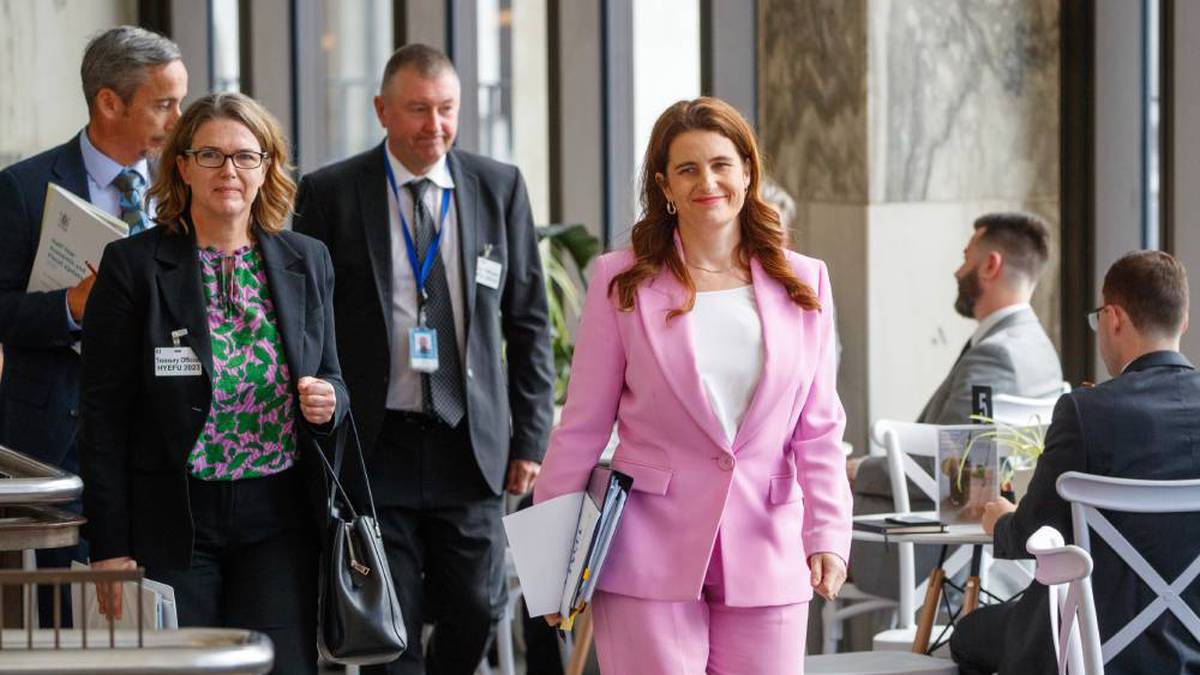
Finance Minister Nicola Willis is continuing to walk away from National’s pre-election promise to get the Government’s books back in surplus by the 2026-27 fiscal year.
“I will be updating our fiscal goals
at our Budge Policy Statement on the 27th of March,” Willis told media this morning.
“Our goals at that time will take into account the latest forecasts.”
Willis is worried the Government won’t collect as much tax as expected late last year because of the sluggishness of the economy.
Her comments suggest the Government is unwilling to do whatever it takes to get the books out of the red by 2026-27.
While Willis is looking for fat to cut out of the public sector, and will increase welfare payments by less than the Labour-led Government would have, she remains committed to delivering a range of tax cuts.
Details of how the Government will water down the planned trustee tax rate hike are expected to be unveiled later this week.
The Government will, at some stage before the May 30 Budget, confirm how quickly it will phase out the interest limitation rule, which prevents residential property owners from writing off interest as an expense.
Meanwhile, the Budget is expected to unveil exactly how it will change income tax thresholds.
The country’s de facto capital gains tax, or bright-line test, is also expected to be reduced from 10 to two years from July 1.
The tax cuts will be delivered as the latest Crown accounts show the Government collected $752 million (or 1.1 per cent) less tax in the seven months to January 31 than was forecast by the Treasury in its Half-Year Economic and Fiscal Update, published in late-December.
While the variance is small in the scheme of things, the Treasury flagged the impact of the “deteriorating macroeconomic” environment.
ANZ senior economist Miles Workman said there was a question mark over how much further things would deteriorate.
In the seven months to January, core Crown tax revenue was still 7 per cent higher than it was during the same period the previous year.
The labour market was strong, and high inflation meant people paid more GST buying fewer, but more expensive, goods and services.
However, businesses absorbed much of the stress, with the corporate tax down 11 per cent.
Workman said some businesses would only be able to have their margins squeezed for a limited period before they’d start laying off staff – at which point the pain would be felt by households.
The hope, of course, is that inflation keeps abating and mortgage rates fall more materially.
Workman said New Zealand might find itself in a situation where the Government runs a pro-cyclic fiscal policy – adopts a contractionary approach towards spending, while the economy is doing it struggling.
Governments should ideally run counter-cyclic fiscal policy – spend more during tough times to support the economy, and less during the good times when more money can’t be absorbed.
Workman believed the problem was that the previous government continued to spend a lot following the initial Covid response when the economy was at capacity and there was inflation.
Willis said it was “absolutely” still the Government’s goal to return the books to surplus.
“We cannot continue in deficit forever,” she commented, saying National was genuine and realistic when it told voters ahead of the election it would deliver a surplus by 2026-27, all the while cutting taxes.
Labour likewise promised to get the books back in the black by 2026-27.
If this eventuates, the books would’ve been in deficit for six years – the same length of time they were in the red for following the Global Financial Crisis and Canterbury earthquakes.
The Treasury, in December, forecast a tiny surplus of only $100 million for 2026-27.
Jenée Tibshraeny is the Herald’s Wellington Business Editor, based in the Parliamentary press gallery. She specialises in government and Reserve Bank policymaking, economics and banking.




 Ministers slate Defence Force Boeing plane breakdown as ‘embarrassing’ after PM Chris Luxon makes his own way to Australia
Ministers slate Defence Force Boeing plane breakdown as ‘embarrassing’ after PM Chris Luxon makes his own way to Australia